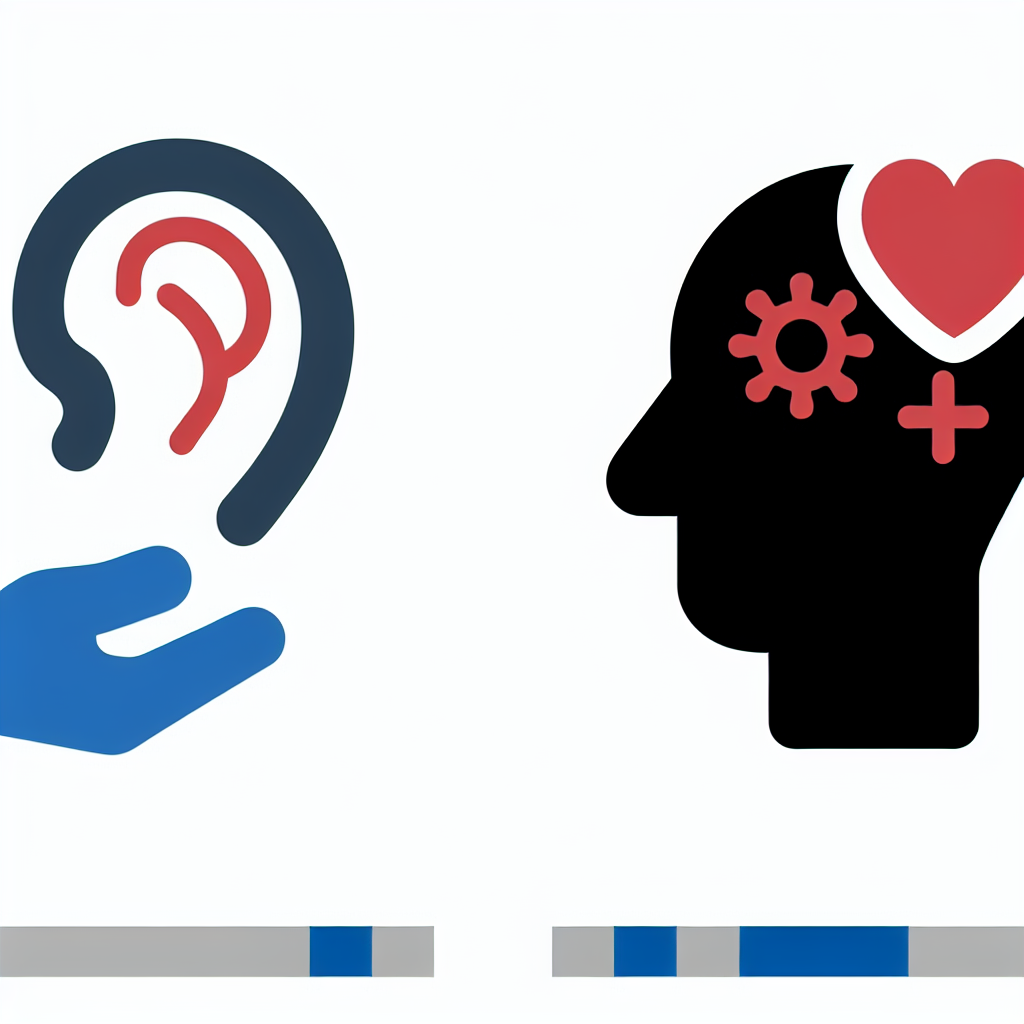
When discussing individuals with hearing difficulties, using appropriate and respectful terminology is crucial for fostering understanding and reducing stigma. The language we choose can significantly impact how people with hearing loss are perceived and how they perceive themselves. Understanding the correct terms to use demonstrates respect for the hearing loss community and promotes inclusive communication.
The Two Acceptable Terms for Hearing Loss
The two most widely accepted and appropriate terms when referring to someone with hearing difficulties are:
- “Person with hearing loss”
- “Hard of hearing”
These terms are preferred because they use person-first language and accurately describe the condition without being offensive or outdated. At Cal Hearing, we understand the importance of using respectful terminology when discussing hearing health with our patients and their families.
Understanding Person-First Language
Person-first language emphasizes the individual rather than their disability or condition. When we say “person with hearing loss,” we acknowledge that hearing loss is just one aspect of a person’s life, not their defining characteristic. This approach helps reduce stigma and promotes dignity for individuals experiencing hearing difficulties.
Why These Terms Are Preferred
Professional audiologists and hearing healthcare providers, including those at Cal Hearing’s services, recommend these terms for several important reasons:
- Accuracy: Both terms accurately describe the medical condition without exaggeration or minimization
- Respect: They maintain dignity while acknowledging the hearing challenge
- Professional acceptance: These terms are widely used in medical and audiological settings
- Community preference: Many individuals with hearing loss prefer these descriptive terms
Terms to Avoid
When discussing hearing loss, certain outdated or potentially offensive terms should be avoided:
- “Deaf and dumb” – This phrase is considered highly offensive and inaccurate
- “Hearing impaired” – While sometimes used, many in the hearing loss community find this term outdated
- “Suffers from hearing loss” – This implies ongoing suffering rather than simply having a condition
Professional hearing testing can help determine the extent of hearing loss and guide appropriate terminology usage.
The Difference Between “Hard of Hearing” and “Deaf”
“Hard of hearing” typically refers to individuals with mild to moderate hearing loss who may benefit from hearing aids or other assistive devices. These individuals often retain some functional hearing and may communicate primarily through spoken language.
“Deaf” usually refers to individuals with profound hearing loss who may rely primarily on visual communication methods such as sign language. The Deaf community often views deafness as a cultural identity rather than a disability.
Proper hearing aid fitting can significantly improve quality of life for many people with hearing loss, regardless of the terminology used to describe their condition.
Cal Hearing’s Comprehensive Services
At Cal Hearing, we provide comprehensive hearing healthcare services for individuals experiencing hearing difficulties. Our professional team understands the importance of respectful communication and uses appropriate terminology when working with patients.
Our services include:
- Comprehensive hearing testing and evaluations
- Professional hearing aid fitting and consultation
- Specialized tinnitus therapy for ringing in the ears
- Custom hearing protection solutions
- Expert hearing aid repairs and maintenance
We proudly serve multiple communities, and you can learn more about our areas we serve on our website.
Supporting the Hearing Loss Community
Using appropriate terminology is just one way to support individuals with hearing loss. Other important considerations include:
- Speaking clearly and facing the person when communicating
- Being patient and understanding during conversations
- Learning about hearing loss and available treatment options
- Supporting accessibility initiatives in your community
For additional information about hearing health and communication strategies, visit our resources page or explore our blog for helpful articles and tips.
The Impact of Respectful Language
Using appropriate terminology when discussing hearing loss creates a more inclusive environment and helps reduce the stigma often associated with hearing difficulties. When we use respectful language, we:
- Encourage more people to seek necessary hearing healthcare
- Promote better understanding within families and communities
- Support the self-esteem and confidence of individuals with hearing loss
- Create more welcoming environments in healthcare settings
Professional Guidance and Support
If you or someone you know is experiencing hearing difficulties, professional evaluation and support are essential. Early intervention can significantly improve outcomes and quality of life for individuals with hearing loss.
Professional audiologists can provide comprehensive assessments, recommend appropriate treatment options, and offer guidance on communication strategies. Whether someone is experiencing mild hearing difficulties or more significant hearing loss, proper professional care makes a meaningful difference.
Conclusion
The two acceptable terms for discussing hearing loss – “person with hearing loss” and “hard of hearing” – reflect respectful, person-first language that acknowledges the individual while accurately describing their hearing status. Using appropriate terminology helps create a more inclusive society and reduces stigma surrounding hearing difficulties.
At Cal Hearing, we’re committed to providing compassionate, professional hearing healthcare services while maintaining respectful communication with all our patients. Understanding and using appropriate terminology is just one aspect of creating a supportive environment for individuals with hearing loss.
If you have concerns about your hearing or would like to learn more about our services, we encourage you to contact our team for professional guidance and support. Our experienced audiologists are here to help you navigate your hearing health journey with dignity and respect.









